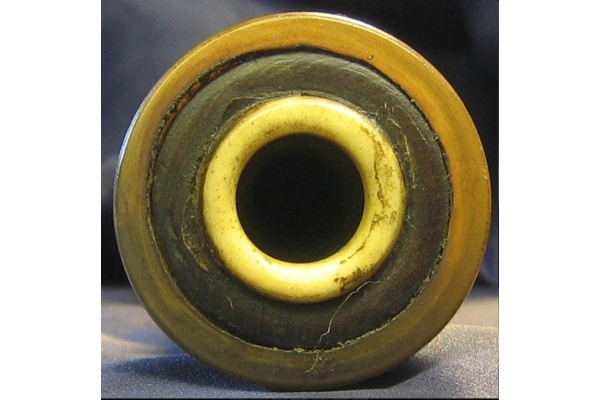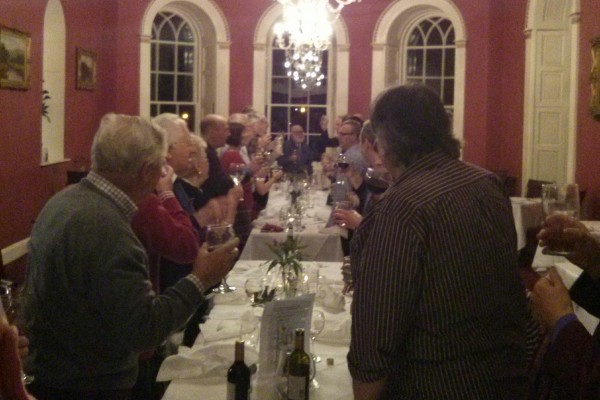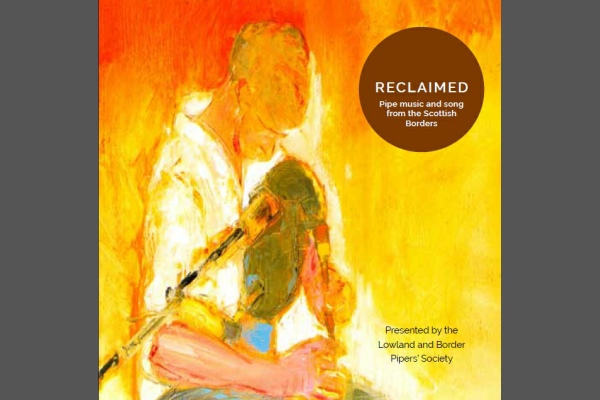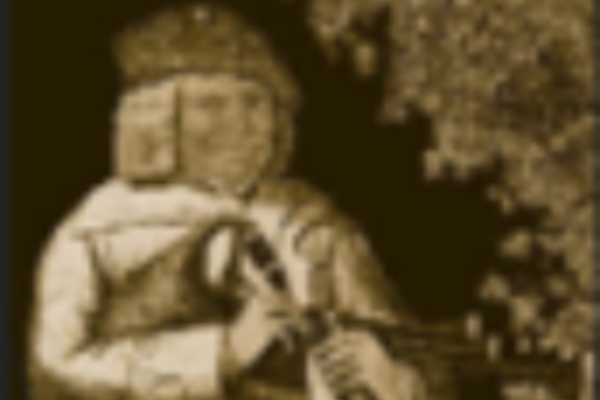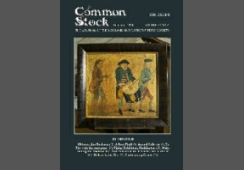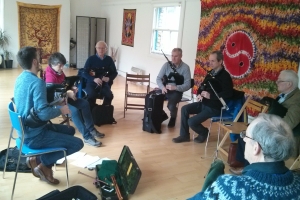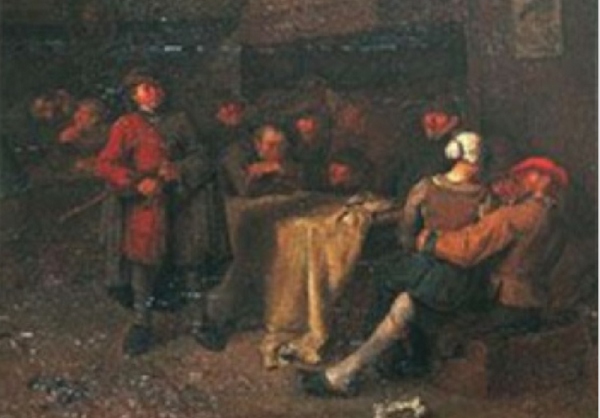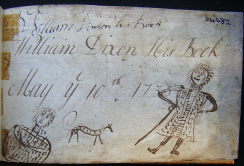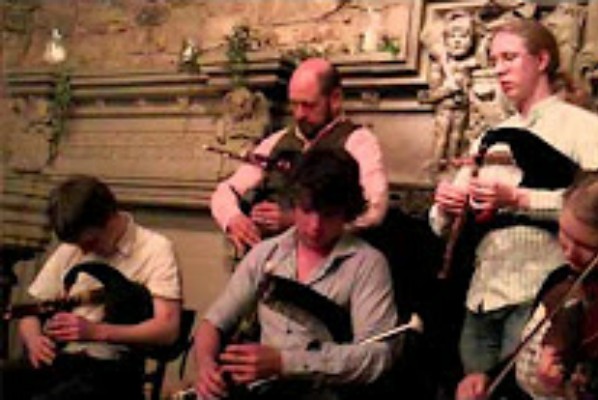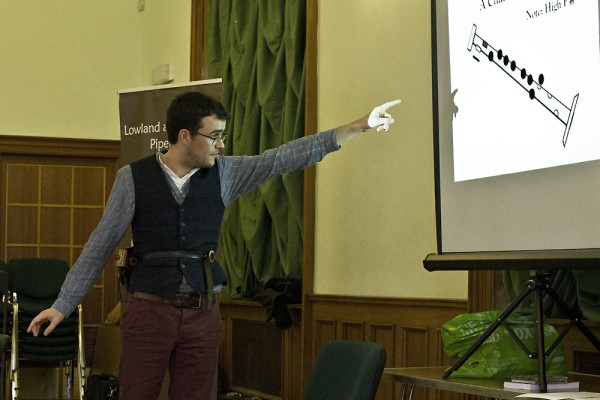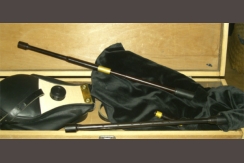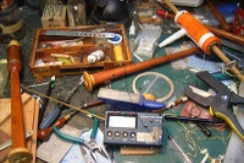To the Editor:
I have decided to join your ranks from abroad and thought it would be good to introduce myself and a little about my piping journey, my goals with the society, and perhaps even some insight into the art form in my corner of North America.
In the aftermath of the 9/11 terrorist attack on the United States, I saw lots and lots of Highland Pipers playing memorial services on TV and thought to myself what a cool art form it was. Up to that point I had only ever seen bagpipes of any sort in passing on TV, and almost always either Great Highland Bagpipes or Uillean Pipes, never Scottish Smallpipes or Border Pipes. However, something struck me at that point, and I resolved to learn the pipes. I was soon enrolled in a local program in Tennessee learning GHBs with a local community pipe band, The Knoxville Pipes and Drums. For Christmas in 2002, my parents bought me a set of pipes they had heard about online, the Walsh 3rone Shuttle Pipes out of Canada. For those unfamiliar, they’re a large single drone body from a singlestock and three internal sections that are controlled with “shuttle” slides; the reeds are akin to practice chanter reeds, and the whole setup makes for a verygood intro set of bagpipes or practice pipes, especially for the young aspiring highland piper. For a long time, my small pipes were just that - practice pipes.
I regularly attended the North American Academy of Piping and Drumming, headed by Balvenie Medal Winner Sandy Jones, and continued focusing primarily on the art of the GHBs; Sandy did teach a few tunes with these bizarre embellishments, the oddest of which was this “trill” that was like the same gracenote three times in a row! People would often bring out small pipes in their free time and Iactually managed to make my wee shuttle pipes sound pretty good (sometimes).I still wasn’t sure what that third drone was for though - how was I supposed to play a tune with a lot of D’s when that pesky baritone is obstinately sounding a constant E?
I continued being heavily involved in the Highland piping scene in the Southeastern USA, eventually becoming Pipe Major of The Charleston Pipe Band (formerly Charleston Police Pipes and Drums), and regularly teaching students the GHBs. At times we play local venues or gigs that call for a little less “racket” than the big pipes make, so those of us who own smallpipes in the key of A will go play our band’s highland pipe repertoire on our smallpipes instead of the big pipes, but it dawned on me more and more that different parts of the repertoire have a much different impact on these cylindrical chanters than on the conical bored chanters imagine a group of small pipers playing the jig “The Glasgow City Police Pipers” it becomes just a cacophony of high A!
Coming full circle, I returned to the NAAPD as an adult a few summers ago, and an instructor there - Robert Mitchell (thereelpiper.com) - had begun offering lessons on the smallpipes and confirmed all my suspicions. Toarluaths aren’t *really* a key part of the traditional lowland pipe idiom, the trad reels and jigs that are staples in the lowland session repertoire are sometimes different than the “hefty” tunes pushed by top pipe bands these days, and the core practice - the session - is more about getting together and listening as much as playing and is very different than the typical massed bands and street parades of the GHBs. I took the lessons to heart and looked for sessions near me. Unfortunately, there weren’t any that focused on the Scottish lowland repertoire, but I did find a good
Irish session group that knew a few of the trad jigs and reels I had learned, and attended several sessions in 2019 and early 2020 (pre-COVID). I got a good set of 4-drone lowland pipes by Fred Morrison, and started arranging and composing some tunes with the intention of expanding my repertoire for the lowland pipes. I’ve even experimented with using my baritone drone playing both D and E! As I made an effort to learn more and more, I read everything I could find online and came across the LBPS and joined. Hopefully I can meet some of you all in person someday soon, or attend some of the virtual workshops you have. Perhaps someday, there will even be enough players in my region to have a proper session!
Cheers,
James D Ingraham, Charleston, SC, USA
